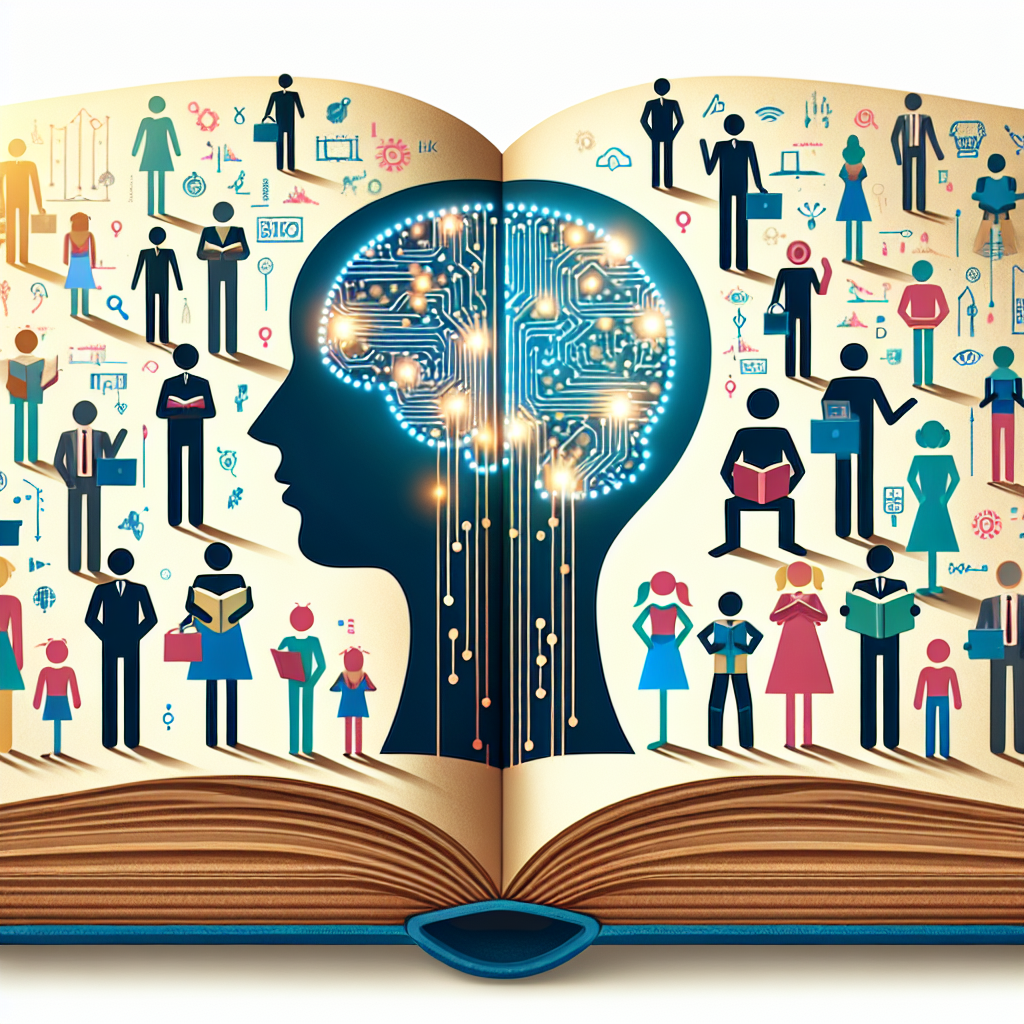Artificial Intelligence (AI) has become an integral part of our daily lives, from virtual assistants like Siri and Alexa to recommendation algorithms on social media platforms. As AI technology continues to advance, its potential to promote diversity and inclusion through cultural competency education is becoming increasingly apparent.
Cultural competency education is essential in today’s diverse society, as it helps individuals understand and respect the beliefs, values, and practices of people from different cultural backgrounds. By integrating AI into cultural competency education, we can enhance learning experiences, promote understanding, and foster inclusivity in various settings such as schools, workplaces, and communities.
AI technology can provide personalized learning experiences that cater to the individual needs and preferences of learners from different cultural backgrounds. For example, AI-powered language learning platforms can adapt to the linguistic abilities of learners and provide targeted exercises to improve their language skills. This personalized approach allows learners to progress at their own pace and feel more engaged in the learning process.
Furthermore, AI can help educators create culturally relevant and inclusive curriculum materials. By analyzing data on cultural norms, values, and practices, AI algorithms can identify gaps in existing educational materials and suggest ways to make them more inclusive. This can help educators develop curriculum materials that reflect the diversity of their students’ backgrounds and experiences, ultimately promoting a more inclusive learning environment.
In addition, AI technology can facilitate cross-cultural communication and collaboration by providing real-time translation services and cultural sensitivity training. For example, AI-powered translation tools can help individuals communicate effectively across language barriers, while AI algorithms can provide insights on cultural differences and norms to promote respectful interactions in multicultural settings.
Overall, AI has the potential to revolutionize cultural competency education by providing personalized learning experiences, creating inclusive curriculum materials, and facilitating cross-cultural communication. By harnessing the power of AI technology, we can promote diversity and inclusion in education and beyond.
FAQs:
Q: How can AI promote diversity and inclusion in cultural competency education?
A: AI technology can provide personalized learning experiences, create inclusive curriculum materials, and facilitate cross-cultural communication to promote diversity and inclusion in cultural competency education.
Q: Can AI algorithms be biased in cultural competency education?
A: AI algorithms can be biased if they are trained on biased data. To prevent bias in cultural competency education, it is essential to use diverse and representative data sets and regularly monitor and evaluate the performance of AI algorithms.
Q: How can educators integrate AI into cultural competency education?
A: Educators can integrate AI into cultural competency education by using AI-powered language learning platforms, developing culturally relevant curriculum materials, and providing training on cross-cultural communication using AI technology.
Q: What are the potential challenges of using AI in cultural competency education?
A: Some potential challenges of using AI in cultural competency education include ensuring data privacy and security, addressing biases in AI algorithms, and promoting ethical use of AI technology in educational settings. It is essential to address these challenges to maximize the benefits of AI in promoting diversity and inclusion in education.

